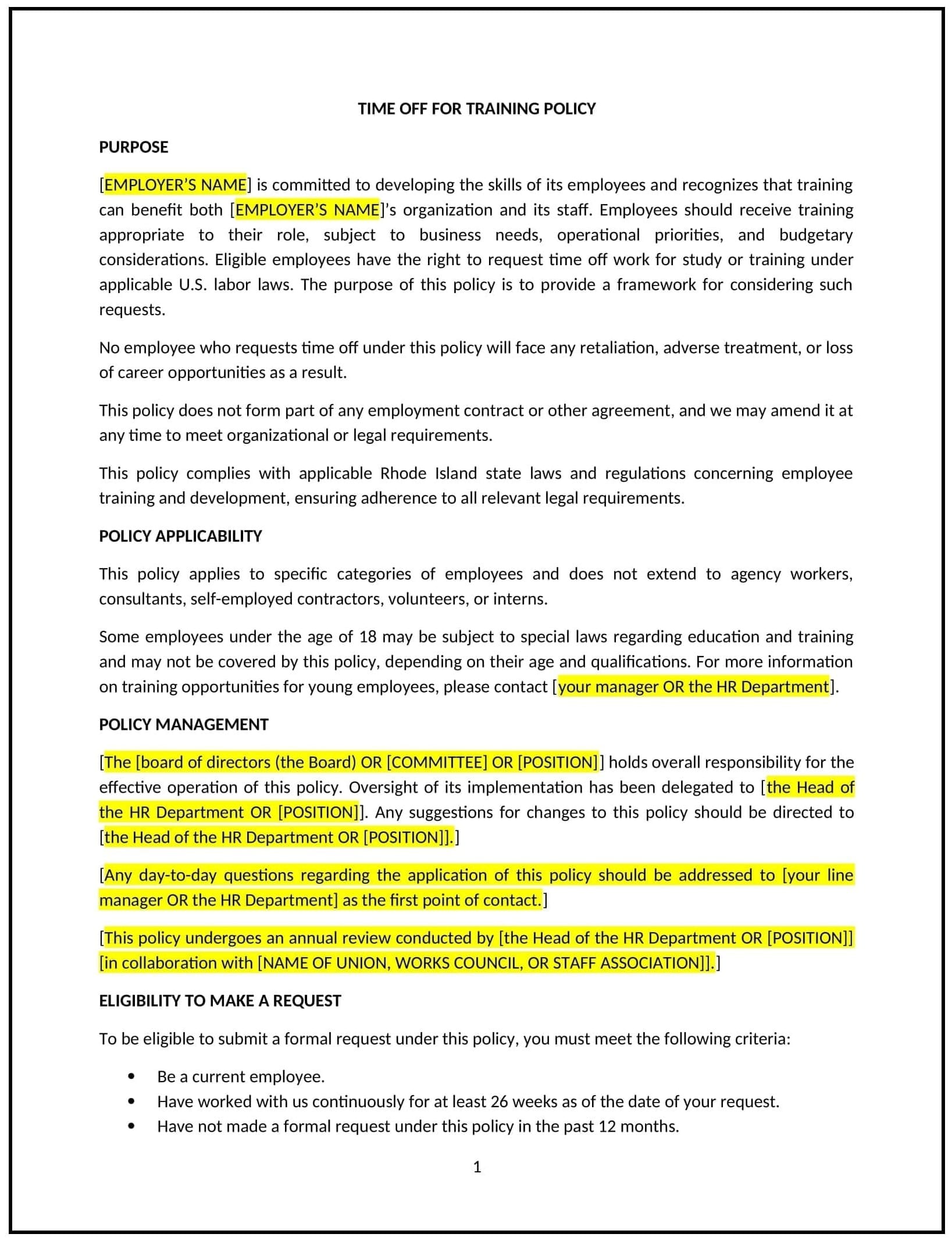Time off for training policy (Rhode Island): Free template
Got contracts to review? While you're here for policies, let Cobrief make contract review effortless—start your free review now.

Customize this template for free
Time off for training policy (Rhode Island)
This time off for training policy is designed to help Rhode Island businesses establish guidelines for employees taking leave to attend training or professional development programs. It outlines procedures for requesting leave, pay during leave, and job protection.
By adopting this policy, businesses can support employee growth, enhance skills, and improve overall performance.
How to use this time off for training policy (Rhode Island)
- Define training leave: Clarify what qualifies as training leave, such as attending workshops, seminars, or certification programs.
- Set request procedures: Outline steps for employees to request time off, including notice requirements and documentation.
- Address pay during leave: Specify whether employees will be paid during their absence for training.
- Ensure job protection: Guarantee that employees will return to the same or an equivalent position after their leave.
- Train managers: Educate supervisors on handling leave requests and maintaining workflow during employee absences.
- Review and update: Assess the policy annually to ensure it aligns with evolving business needs and employee expectations.
Benefits of using this time off for training policy (Rhode Island)
This policy offers several advantages for Rhode Island businesses:
- Supports employee growth: Encourages employees to develop new skills and advance their careers.
- Enhances skills: Improves employee performance and productivity through targeted training.
- Boosts morale: Demonstrates the business’s commitment to employee development and career advancement.
- Attracts talent: Makes the business more appealing to candidates seeking opportunities for professional growth.
- Reduces turnover: Employees are more likely to stay with a business that invests in their development.
Tips for using this time off for training policy (Rhode Island)
- Communicate the policy: Share the policy with employees and include it in the employee handbook.
- Provide training: Educate managers on handling leave requests and maintaining workflow during employee absences.
- Monitor compliance: Regularly review leave requests to ensure adherence to the policy.
- Address issues promptly: Take corrective action if leave requests are mishandled or denied improperly.
- Update regularly: Assess the policy annually to ensure it aligns with evolving business needs and employee expectations.